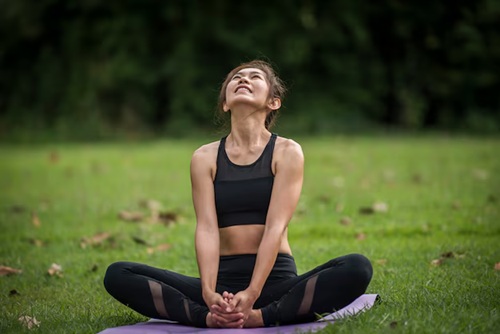Chronic tension can feel like an unwelcome guest, lingering in your body and mind long after stress has taken root. From tight shoulders to nagging headaches, the physical repercussions of tension can weigh heavily on daily life. Meditation, however, offers a powerful antidote.
By harnessing the mind-body connection, you can not only soothe mental stress but also physically release built-up tension.
Here’s why meditation is a secret weapon against chronic tension and how you can use it to reclaim a sense of ease.
Promoting Deep Relaxation

One of meditation’s most potent effects is its ability to lull the body into a state of deep relaxation. When we meditate, our heart rate slows, and the production of stress hormones like cortisol decreases. This physiological shift gives our muscles the chance to release tightness that builds up from prolonged stress.
For instance, body scan meditation is a particularly effective technique for physical relaxation. By focusing your awareness on different parts of your body, starting from your toes and moving upward, you can consciously release tension stored in hard-to-reach areas like your neck or lower back. Over time, this practice can become your go-to method for letting go of physical strain.
Rewiring Stress Responses
Chronic tension isn’t just about physical discomfort; it has a psychological root. When your mind perceives stress, your body adopts a fight-or-flight stance, leading to tightened muscles and accelerated breathing. Meditation teaches your brain how to pause, evaluate, and respond more calmly to stressors.
Mindfulness meditation, for example, trains you to observe your thoughts and feelings without judgment. Instead of fixating on stress, you learn to detach from it. Scientific studies show that regular mindfulness practitioners experience lower amygdala activity (the brain’s fear center) and increased activity in the prefrontal cortex, which helps in rational decision-making and emotional control.
Improving Mental Clarity
Chronic tension is often fueled by mental clutter. Overthinking, worry, and constant to-do lists can make your body feel just as heavy as your mind. Meditation creates a mental “reset,” replacing persistent clutter with clarity. Practices like focused attention meditation target this issue directly. By concentrating on a single point of focus, such as your breath or a calming mantra, you train your brain to stay in the present moment, easing mental strain.
With improved mental clarity, you’ll likely find yourself making healthier decisions in other areas, such as posture, exercise, and sleep, which also contribute to tension relief.
Tips for Beginners
Starting a meditation practice doesn’t have to be complicated. Here are a few beginner-friendly tips to help you start:
- Start small: Aim for 5-10 minutes a day. Apps like Calm or Headspace can guide you through short sessions tailored to beginners.
- Focus on breathing: Deep, slow breaths signal your nervous system to relax, making breath-focused meditation a simple yet effective tension reliever.
- Try guided meditations: A guided practice can direct your attention and help you visualize releasing tension.
- Be consistent: Treat meditation like brushing your teeth. Even a few minutes daily can lead to noticeable changes over time.
Meditation Techniques Targeting Tension Relief
Several meditation styles are well-suited for addressing chronic tension:
- Progressive muscle relaxation: Systematically tensing and relaxing each muscle group.
- Loving-kindness meditation: Focusing on sending feelings of compassion to yourself and others, which reduces mental stress.
- Yoga nidra: Also known as “yogic sleep,” this practice deeply relaxes both the body and mind, making it a favorite for relieving tension.
Conclusion
Meditation is more than a fleeting relaxation tool, it’s a long-term strategy for tackling chronic tension at its root. By addressing stress, improving mental clarity, and promoting physical relaxation, it offers a holistic way to restore balance and vitality. Whether you’re dealing with work stress, emotional challenges, or daily aches, making meditation a regular part of your routine can help you reclaim your inner peace and resilience.






